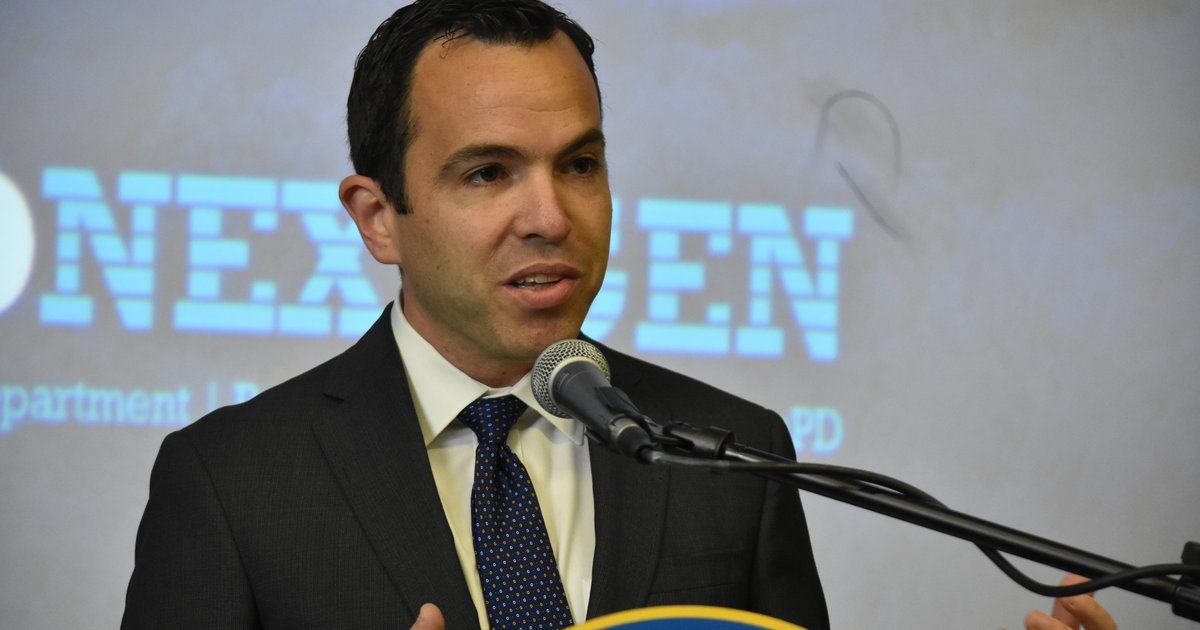Attorneys general in 16 jurisdictions sued Monday to block a Trump administration plan to redistribute thousands of devices that convert guns to machine guns, including distribution in states where such devices are banned by state law.
The lawsuit, filed in U.S. District Court in Maryland, says the plan would not only expose residents of those states to greater amounts of deadly violence, but it would be contrary to federal law that calls for the seizure of machine-gun conversion devices. And it would cause federal officials to “aid and abet violations of state law” by distributing the devices in states where they are outlawed, the suit says.
SIGN UP HERE to get PhillyVoice’s newsletters delivered to your inbox
The decision to return almost 12,000 forced reset triggers — which allow shooters to fire hundreds of rounds a minute with one pull of the trigger — was announced in a settlement last month between the Bureau of Alcohol, Tobacco, Firearms and Explosives and gun manufacturers and gun-rights groups.
“These devices enable firearms to fire up to 900 bullets per minute. The increased rate of fire allows carnage and chaos to reign on the streets,” said Maryland Attorney General Anthony Brown in a virtual press briefing Monday with New Jersey Attorney General Matthew Platkin and Delaware Attorney General Kathy Jennings. All three are Democrats.
“Everyone nearby becomes vulnerable to serious injury or death. These are battlefield weapons that have no place in our communities,” Brown said.
Under the Biden administration, ATF classified forced reset triggers as “prohibited machine guns under federal law … and conducted extensive retrieval operations, seizing nearly 12,000 FRTs from the field,” according to the lawsuit.
But the new administration reversed course after a Feb. 7 executive order from President Donald Trump (R) on “Protecting Second Amendment Rights.“
On May 16, the Justice Department announced a settlement with Rare Breed Triggers, a manufacturer of the devices based in Wichita City, Texas. Under the deal, the company agreed not to develop or design such triggers for handguns, to promote safe and responsible use of its products, and to enforce its patents to “prevent infringement that could threaten public safety.”
In exchange, the government agreed not to enforce any policy where an FRT is “contended to be” a machine gun, and to return by Sept. 30 any reset triggers seized or “taken as a result of a voluntary surrender.”
“We won,” Lawrence DeMonico, president of Rare Breed Triggers, said in a video posted online the day settlement was announced. “With the Trump administration’s renewed focused on justice and their commitment to correcting the weaponization of the DOJ under the Biden administration, we were finally able to secure a deal that brought this fight to a close.”
Representatives with Rare Breed Triggers and the Justice Department did not respond to email requests for comment Monday.
The National Association of Gun Rights, which was also a party to the settlement, said it a statement that the deal will survive any challenge from the “anti-gun attorneys general.”
“A federal court already ruled the government unlawfully seized thousands of legal triggers from law-abiding Americans — a decision that the ATF now acknowledges and accepts,” said Hannah Hill, vice president for the association. “These states lack standing to file this lawsuit, and they know it. This suit is just reckless political lawfare.”
But the states’ lawsuit highlights the impact of gun violence in their jurisdictions, where it said there were nearly 47,000 gun-related deaths in 2023. Illinois had the most such deaths that year, at 1,691. Of the states represented at Mondays briefing, Maryland recorded 737 gun-related deaths in 2023, New Jersey had 430 and Delaware had 124, according to the suit.
The suit also spells out the financial burden that comes with gun violence, for medical bills, police, court and prison costs. It says one fatal shooting in Baltimore can cost $2.4 million and a nonfatal shooting costs $1.5 million. In Newark, New Jersey, the cost is nearly $2.2 million for a fatal shooting and $1 million for a nonfatal shooting.
“This is not a partisan issue. It is a public safety issue,” Delaware’s Jennings said. “The Trump administration’s deal to redistribute these deadly devices violates the law, full stop. It undermines public safety and ties the hand of law enforcement.”
Platkin recalled the shooting death in March 2022, just two months after he took office, of SeQuoya Bacon-Jones, who was a bystander to a shooting when she was struck and killed. Platkin said SeQuoya would have celebrated her 13th birthday last Saturday.
“She had dreamed of becoming a law enforcement officer, but instead she was killed by a single stray bullet while she was playing hide-and-seek in the courtyard of her apartment complex,” Platkin said. “I wish the Trump administration … would put little kids like Sequoya’s interests ahead of the gun lobby’s. But since they don’t seem to care, we’re going to make them care.”
Besides Maryland, Delaware and New Jersey, other jurisdictions on the suit are the District of Columbia and the states of Colorado, Hawaii, Illinois, Maine, Massachusetts, Michigan, Minnesota, Nevada, Oregon, Rhode Island, Vermont and Washington. All but Maine and Vermont currently have state laws prohibiting forced reset triggers or guns modified with them.
New Jersey Monitor is part of States Newsroom, a nonprofit news network supported by grants and a coalition of donors as a 501c(3) public charity. New Jersey Monitor maintains editorial independence. Contact Editor Terrence T. McDonald for questions: info@newjerseymonitor.com.
(Except for the headline, this story has not been edited by PostX News and is published from a syndicated feed.)

